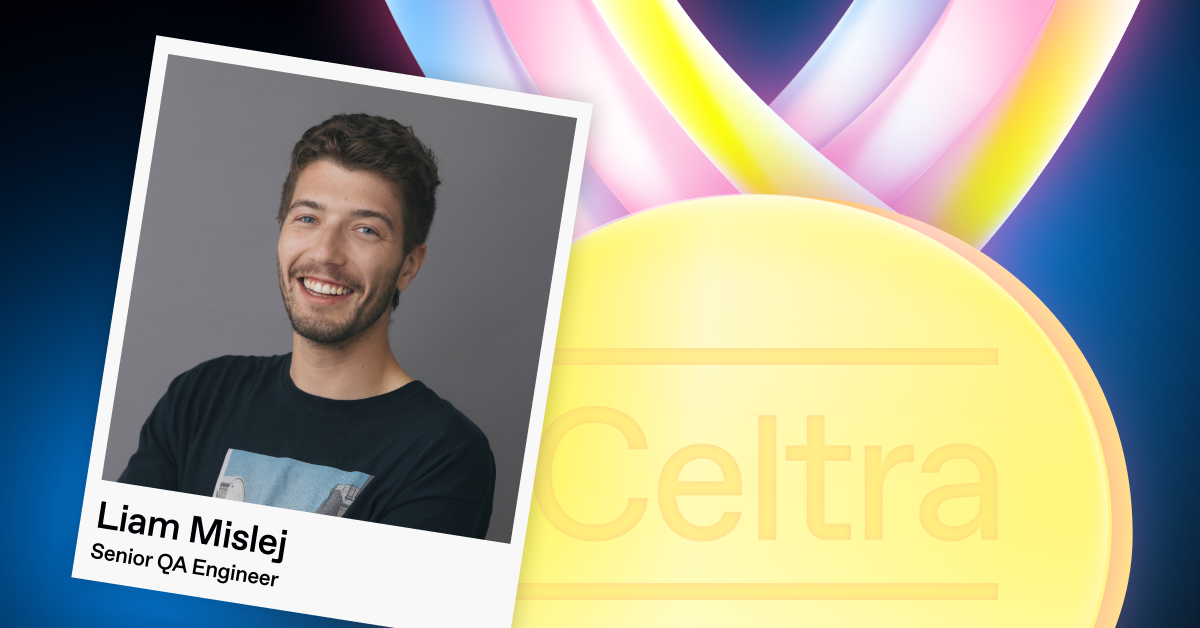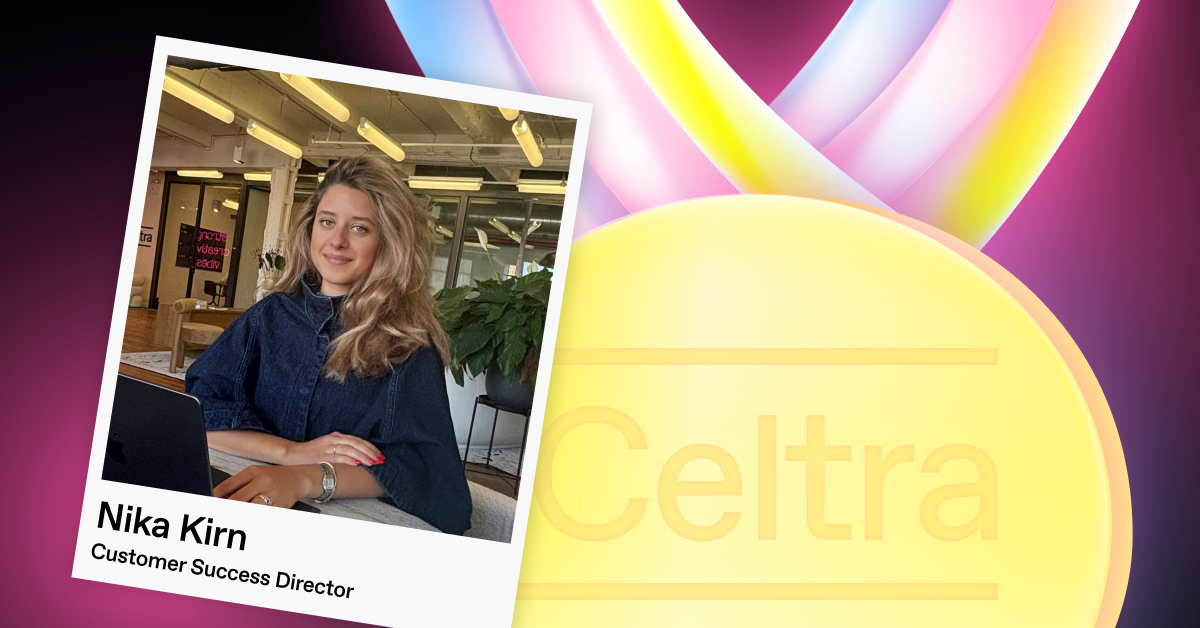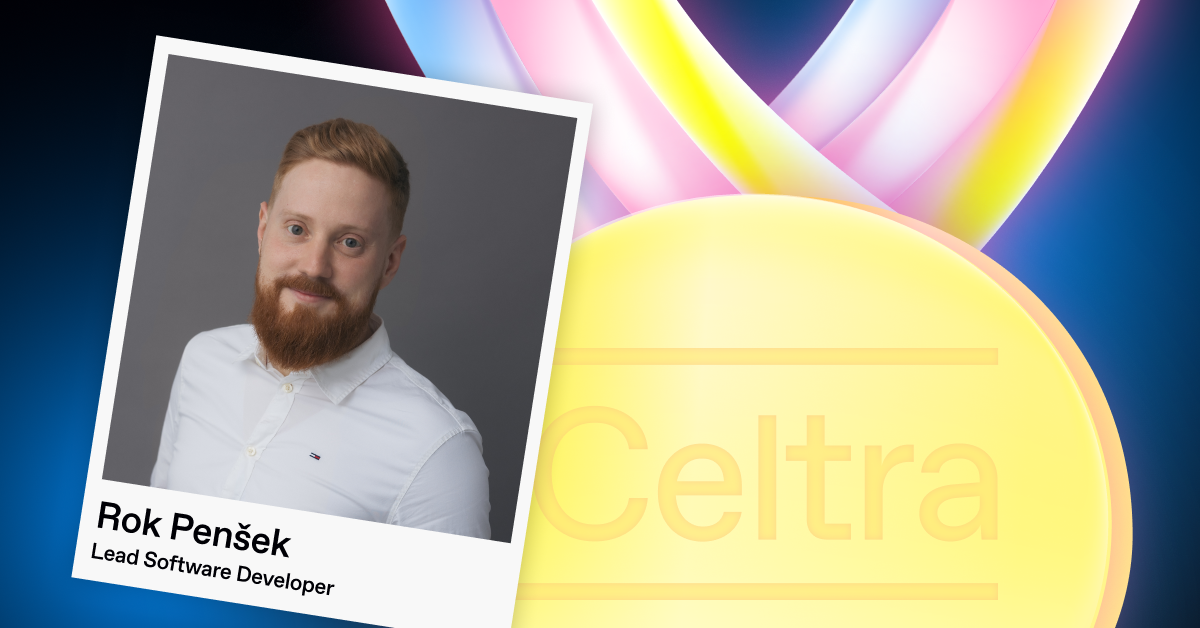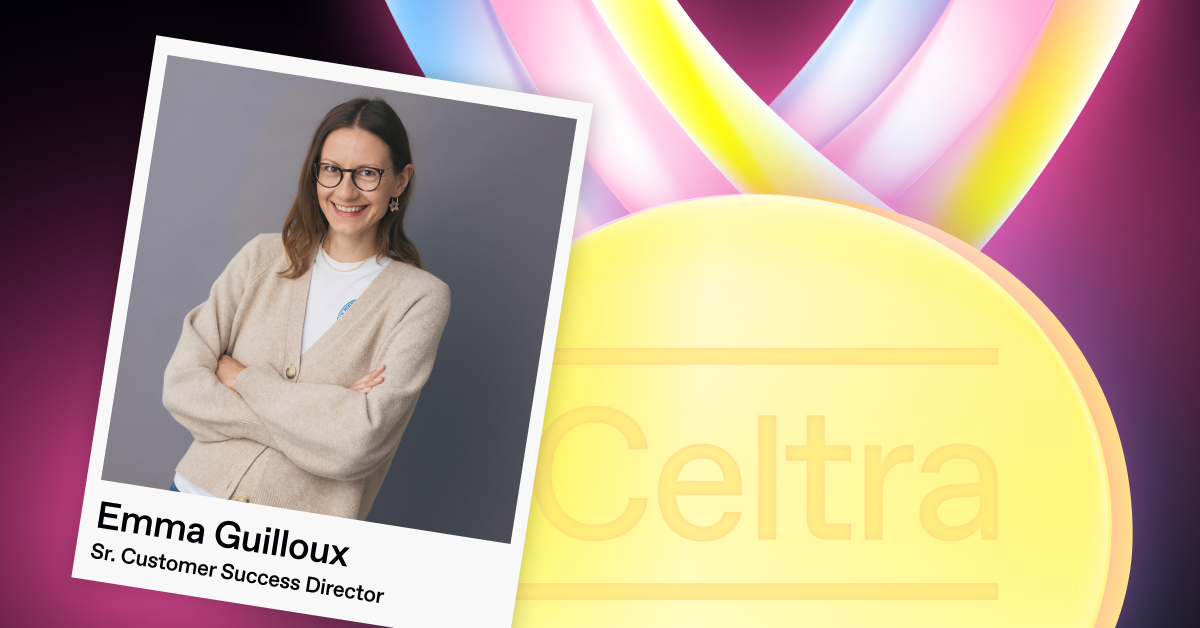It all started with a click-counter and a kid who couldn’t believe he made something that worked. From hosting game servers to building scrapers, Liam Mislej followed his curiosity all the way to QA engineering. At Celtra, he’s still chasing that “I made this!” feeling — just with more complex tools and a lot more collaboration. Read on to see how he turned a childhood spark into a role where quality is everything.
What sparked your interest in engineering, and how did your career path unfold from there?
I’ve always loved math and problem solving, a classic engineer origin story, I know. But what really hooked me was the thrill of building something and watching it actually work. I still remember the first website I made as a kid: it was just a button that increased a number, a good old click-counter. I proudly showed it to my parents, expecting a standing ovation. Instead, I got a confused “…and?” But I was over the moon. That sense of “I made this!” stuck with me.
From there, it snowballed. I started hosting video game servers, making basic games, playing around with object tracking, and eventually building web scrapers. All those random experiments added up and opened the door to my first role in QA and automation. The tools got more complex, but that same feeling of solving a puzzle and making something work? Still the best part.

What are the top 2–3 traits that make a great engineer, and why?
You can Google “top traits of great engineers” and get the usual suspects: problem solving, attention to detail, teamwork… all true. But here are a few that don’t get mentioned enough
Curiosity (about anything)
It doesn’t even have to be about engineering. If you’re someone who just enjoys learning new things, whether it’s how ants organize traffic or why pigeons bob their heads when they walk, that mindset naturally pushes you to explore, experiment, and improve. That joy of discovery? It’s fuel for becoming great at what you do.
Healthy obsession
Not the burn-yourself-out kind, but the type where you start tinkering with something and suddenly it becomes a full-blown passion project. You love talking about it, diving into it, losing track of time with it. That kind of drive can lead to really cool, unexpected outcomes.
Open-mindedness
Harsh truth: You’ll never know everything. But that’s okay, because you don’t have to. When you’re part of a team or a company, collective knowledge is your superpower. Being open to other people’s ideas and perspectives, not just hearing them but really considering them, makes you a better engineer and a better teammate.
What does a ‘typical’ day look like as a QA engineer at Celtra?
It really depends on the team, the project, or sometimes the hour. One moment you’re deep in code, the next you’re in a brainstorm with teammates, and then you’re off down a rabbit hole researching a new tool or idea.
Tech moves fast, and so do we. There’s always something to optimize, refactor, or rethink. At Celtra, we’re big on continuous improvement and best practices, which keeps things fresh and exciting. If I had to boil it down, most days revolve around three core questions:
- How can I break this?
- How can we make it better?
- How can we automate it?
Answering those keeps us sharp and makes the job way more fun than just “checking boxes.”
What are the biggest challenges you face in your role, and how do you tackle them?
One of the trickiest parts, especially at a place like Celtra where innovation is the norm, is tackling problems that don’t have a clear blueprint. A lot of the time, we’re solving things that haven’t been solved before. There’s no Stack Overflow answer, no blog post, no “easy fix.” Just you, a keyboard, and a big ol’ question mark.
So, how do I tackle that?
Easy, I just ask someone smarter than me.
(Kidding! Sort of.)
Truth is, collaboration is everything. In QA engineering, you’re not an island; you work closely with developers, PMs, designers, and more. Whether it’s figuring out a gnarly bug or deciding how to test a brand-new feature, the best way forward is to ask questions, share ideas, and work it out together.
How has your role evolved since you joined Celtra? Any big pivots or surprises along the way?
Starting out as a student intern was definitely intimidating. There were so many unfamiliar terms, tools, and processes flying around. I spent a lot of time just Googling everything and soaking it all in. But over time, that shifted. I went from learning every day to building every day, collaborating with others, leading small initiatives, and eventually running my own projects.
There haven’t been any huge pivots, more like a bunch of small, meaningful turns. One thing that really stood out to me at Celtra is how well new ideas are received, especially if you’ve clearly thought them through. So in a way, I’ve been able to shape my own path here. The “surprises” weren’t so surprising after all, because I got to help design them.
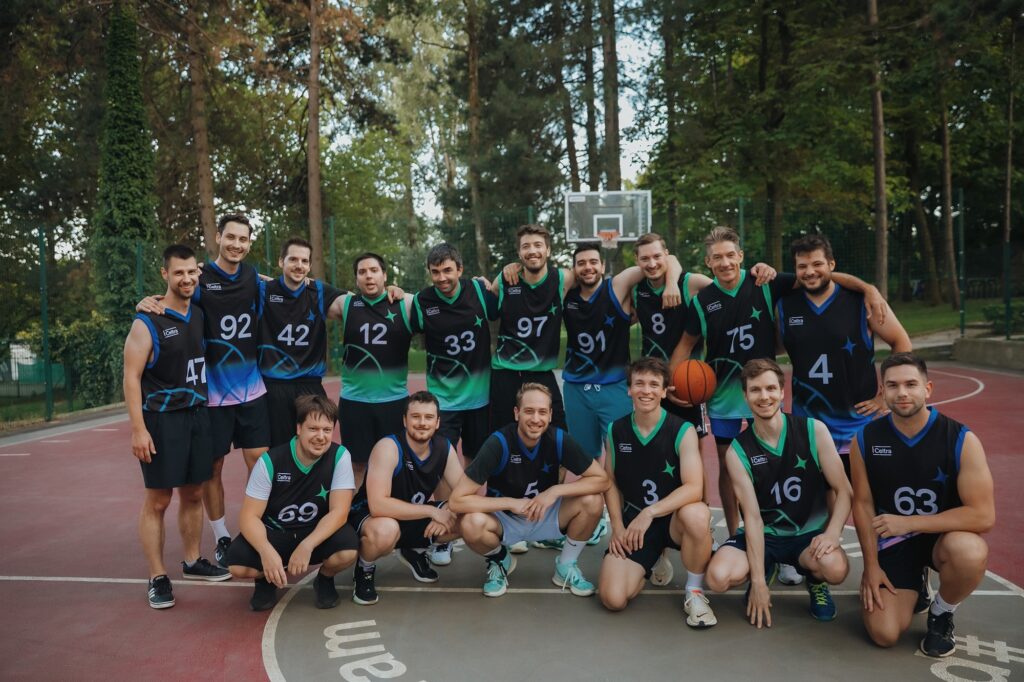
What do you love most about your job, and what makes Celtra stand out as a place to work?
Hands down, it’s the people and the culture. Everyone’s super smart in their own domain, but also chill, supportive, and just genuinely fun to be around. It feels less like a company and more like a big, friendly brain trust.

Good coworkers make all the difference. When you’re surrounded by folks who lift each other up and don’t take themselves too seriously, everything else —collaboration, creativity, even the tough stuff— just clicks into place.
What’s the one tool or habit that keeps you sane and productive?
Music is the first thing that comes to mind. For me, it’s more about unwinding than focusing.
AI tools have also become a helpful part of my workflow. I wasn’t sure how much I’d actually use them at first, but now they help me get started, double-check details, or speed through repetitive tasks.
What’s something about your role that most people misunderstand?
QA often gets a bit of an unfair rep in tech, as a “less technical” or lower-tier role. And yeah, in some cases, that might be true. But it really depends on the company culture and how the team is set up.

At Celtra, QA plays a key role. We’re not just here to “find bugs,” we’re actively involved in shaping quality from the very beginning. Our input is valued, our work is respected, and we’re encouraged to push things forward, not just test what already exists. We get to do some pretty cool stuff too, whether it’s automation, tooling, exploring new ways to improve the product and the process, or even working with concepts like machine learning and AI.
It’s not a side role here; it’s a core part of building great software.

